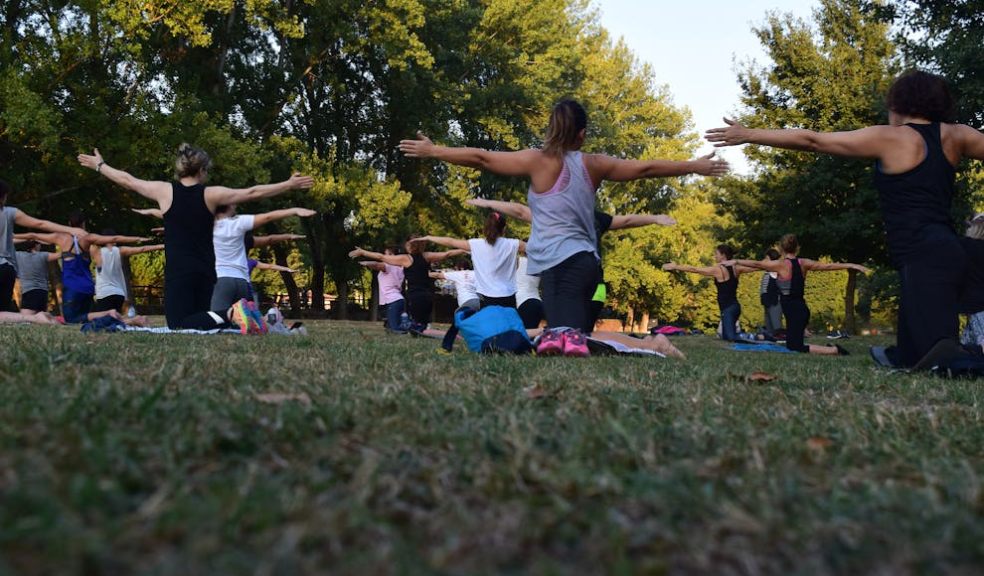
Making Healthier Lifestyle Choices Without Compromising on Enjoyment
Making healthier lifestyle choices doesn’t have to mean giving up the things you enjoy. Many people think that a healthier lifestyle involves a complete overhaul, filled with restrictions and sacrifice, but that’s not necessarily the case. Instead, it’s about finding balance and making small, sustainable changes that fit into your everyday life. Whether it’s through nutrition, fitness, or even your social habits, you can improve your well-being without compromising on enjoyment.
Staying Active Without Overexerting Yourself
Exercise is crucial for both physical and mental health, but for many, the idea of intense workouts feels overwhelming. The good news is that staying active doesn’t have to be about pushing yourself to exhaustion or spending hours at the gym. In fact, research suggests that just 150 minutes of moderate aerobic activity a week can significantly boost your health.
This might look like going for brisk walks, cycling, or even dancing—activities that don’t feel like exercise but keep youmoving. A survey by Sport England found that more and morepeople in the UK now walk for leisure or travel, which shows that people are finding ways to stay active without turning to traditional workouts. The key is to find something you enjoy, whether that’s swimming, yoga, or even joining a local football team.
By finding enjoyable activities, you’re more likely to maintain them as part of your lifestyle, which will help to improve both your physical and mental well-being. Exercise releases endorphins, which can reduce stress, anxiety, and depression—making it a crucial component of a healthier lifestyle without feeling like a chore.
Mindfulness and Mental Health: A Daily Practice
Mental health is an essential part of a balanced lifestyle, and taking time to look after your mental well-being is just as important as physical health. In the UK, mental health issues have risen dramatically, with reports showing that one in four people will experience a mental health problem each year, according to Mind, a mental health charity.
Mindfulness and meditation are increasingly being recognised as effective tools to manage stress and improve mental clarity. Mindfulness involves paying attention to the present moment and can be practised through simple breathing exercises or mindful eating. Apps like Headspace and Calm have made mindfulness accessible, allowing users to integrate short sessions into their daily routines.
By incorporating even five to ten minutes of mindfulness into your day, you can reduce stress levels, enhance focus, and improve your overall sense of well-being. Rather than seeing this as a drastic lifestyle change, it can be a simple addition that brings substantial benefits.
Reducing Stress Without Giving Up Your Social Life
For many people, socialising is an important part of life, and it often involves activities that might not seem particularly healthy, such as drinking alcohol or eating out. However, it’s possible to maintain a vibrant social life while making healthier lifestyle choices, simply by making small adjustments.
For instance, instead of always meeting friends at the pub, consider activities that don’t centre around alcohol, such as joining a sports club, going for hikes, or hosting a game night at home. It’s about striking a balance—there’s nothing wrong with enjoying a drink or two, but swapping alcoholic drinks for non-alcoholic options like mocktails or low-alcohol beers can make a significant difference over time.
Eating out with friends doesn’t have to mean giving up on healthy choices either. Many restaurants now offer more nutritious options, including plant-based meals or dishes that are lower in calories but still delicious. A survey by Public Health England revealed that about 75% of UK adults are trying to make healthier choices when eating out, which shows there’s a growing awareness of how to balance socialising with healthier habits. By being mindful of your choices, you can still enjoy dining with friends without compromising on your goals.
The Role of Vaping in Making Smarter Health Choices
For those looking to reduce their reliance on traditional cigarettes, vaping has emerged as a popular alternative. Many people are switching to vaping as a way to enjoy the smoking experience without exposing themselves to the harmful chemicals found in cigarettes.
One of the reasons vaping has become more accessible is the variety of products on offer. Lost Mary vape options, for example, provide an enjoyable experience with a wide range of flavours, allowing users to personalise their choices to suit their preferences. Whether you’re looking to reduce nicotine intake gradually or are simply after a more pleasant alternative, vaping can fit into a healthier lifestyle strategy without making the process feel restrictive or stressful.
Furthermore, vaping is generally more socially acceptable in many settings where smoking isn’t allowed, making it easier to maintain social interactions without having to step away for long periods to smoke. While it’s important to understand that vaping still carries some health risks, it is a practical step for smokers looking to improve their overall well-being.
Building Better Sleep Habits for a Healthier Lifestyle
Good sleep is often overlooked when discussing healthier lifestyle choices, but it’s one of the most important elements of well-being. Poor sleep has been linked to a range of health issues, including obesity, heart disease, and weakened immune function. According to the NHS, adults should aim for 7 to 9 hours of sleep each night to support optimal health.
Improving sleep doesn’t require drastic changes, but making small adjustments can have a big impact. Start by establishing a regular sleep schedule, even on weekends, to help regulate your body’s internal clock. Limiting screen time before bed is also crucial, as the blue light emitted by phones and computers can disrupt the production of melatonin, a hormone that helps control sleep. A study by the Sleep Foundationfound that reducing screen exposure for an hour before bed improved sleep quality for participants.
Creating a calm, restful environment is another key element. Make your bedroom a peaceful space, free from distractions and clutter. Using blackout curtains or earplugs can further help to create the right conditions for restful sleep, ensuring that your body gets the recovery it needs to stay healthy and energised.
Hydration: A Simple Habit with Big Benefits
Another straightforward yet impactful change you can make towards a healthier lifestyle is staying properly hydrated. Water is essential for many bodily functions, from regulating temperature to maintaining skin health and aiding digestion. Despite its importance, many people don’t drink enough water daily, with a study by Water UK finding that around 89% of people admit they don’t drink the recommended daily amount of water.
In the UK, it’s advised to drink around 6 to 8 glasses of water each day. Staying hydrated helps prevent headaches, improves concentration, and supports the body’s detoxification processes. Many people confuse hunger with thirst, so drinking more water can also help control overeating and support weight management.
If you find plain water unappealing, consider adding slices of fruit, such as lemon or cucumber, to give it a refreshing taste without added sugars. Herbal teas are also a great way to stay hydrated, particularly during colder months. By making hydration a habit, you can experience improved energy levels, better digestion, and even clearer skin—all without much effort or sacrifice.














